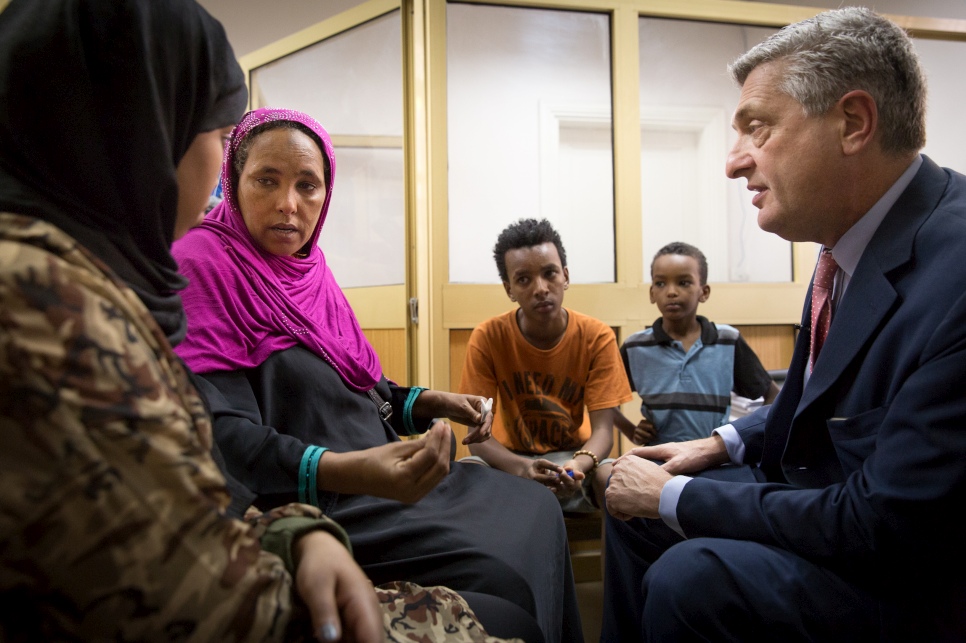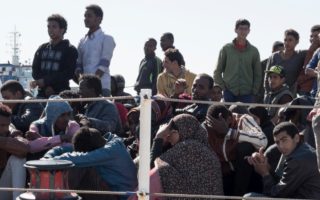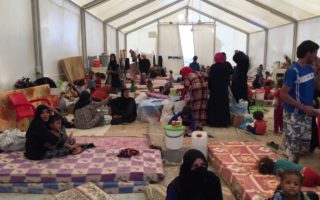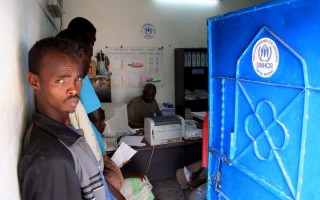
UN High Commissioner for Refugees Filippo Grandi talks with Ethiopian refugees in Cairo. © UNHCR/Pedro Costa Gomes
Filippo Grandi met African refugees in Egypt, many of whom are becoming increasingly vulnerable.
Two years ago in Ethiopia, Sayida’s husband left to buy something for the family. He never returned. Sayida thinks he was arrested, and now she thinks he is dead.
Feeling herself and her children in danger, Sayida fled with them to Sudan and then found smugglers who, in return for money, agreed to take them onwards to Egypt. The overland trek took a nightmarish 19 days. Her group was attacked. They slept on the cold ground. By the end their water had all but run out. But they made it to Egypt.
Sayida and her children are some of the over 70,000 African refugees now registered with UNHCR, the UN Refugee Agency, in Egypt. She told her family’s story to UN High Commissioner for refugees Filippo Grandi. He had come to Caritas, an NGO supported by UNHCR and which offers counsel and help to refugees, on his first day of an official visit to Egypt.
Sayida, like others in Caritas, told Grandi she feels she is still in limbo because she entered Egypt without a visa or a border stamp. While she is already registered with UNHCR, the wait for the decision on her refugee status could be long.
With 17,000 cases pending, the waiting period to resolve cases like hers is still more than 18 months.
“But I am glad we came here,” she told Grandi. “If I can, I want to put my children in school. I want to give them a better future. That is all I wish for.”
Grandi spoke with several African women waiting for help in the halls of Caritas. Syrian refugees make up two-thirds of the 190,000 officially registered refugees in Egypt but the numbers arriving from African countries have spiked to almost 12,500 in the first nine months of 2016.
The UN High Commissioner said he made this his first stop to draw attention to these overlooked people. “The risk here is that this is a forgotten population,” he warned.
“Resources to support them here are scarce and some of them have started to try to cross the Mediterranean to go to Europe. This is one more reason to invest more in their support. And, in addition, to hopefully try and solve the situations where they come from so they can eventually go back.”
“Resources to support them here are scarce and some of them have started to try to cross the Mediterranean to go to Europe.”
As more African refugees and asylum seekers come to Egypt, resources are stretched. Of the US$20 million budget needed in 2016 to help these people in need, UNHCR has so far only received a quarter.
Life for the African refugees in Egypt is not easy. It is hard to find work. Sayida did have a job but had to abandon it because of chronic abdominal pains. And as an Ethiopian she is unable to access public medical care or enroll her three children in a public school.
At the moment Sayida’s family lives with other Ethiopians in a room built on the roof of an apartment building. Some nights 18 people sleep in the unheated rooftop room.
Sayida told Grandi she still lives with fear.
“I have to pay the smugglers back,” she said. “And I’m afraid because I cannot pay.”





